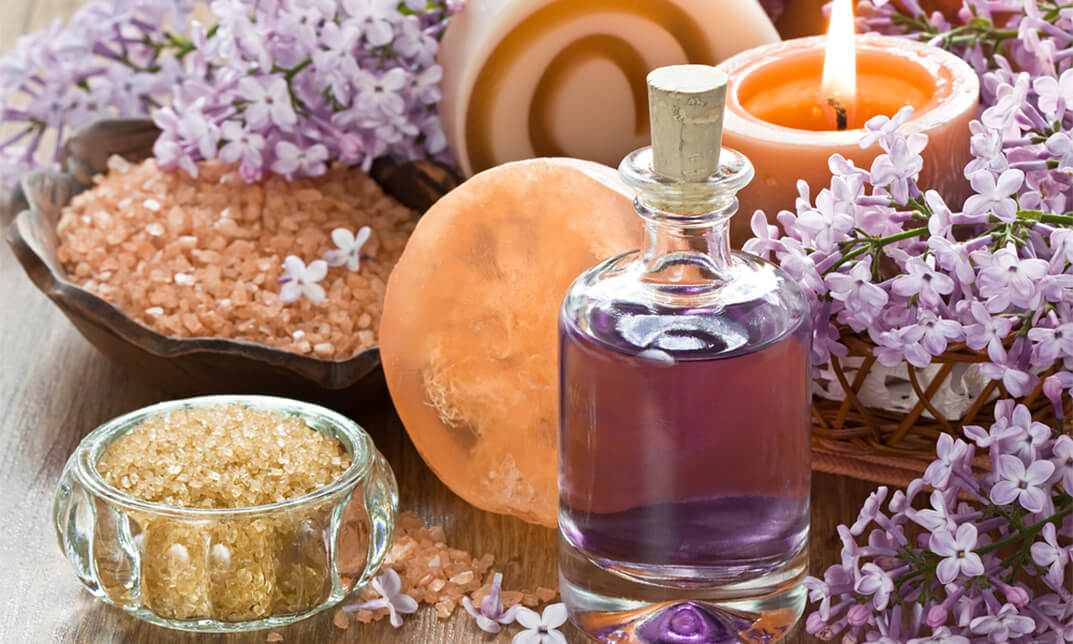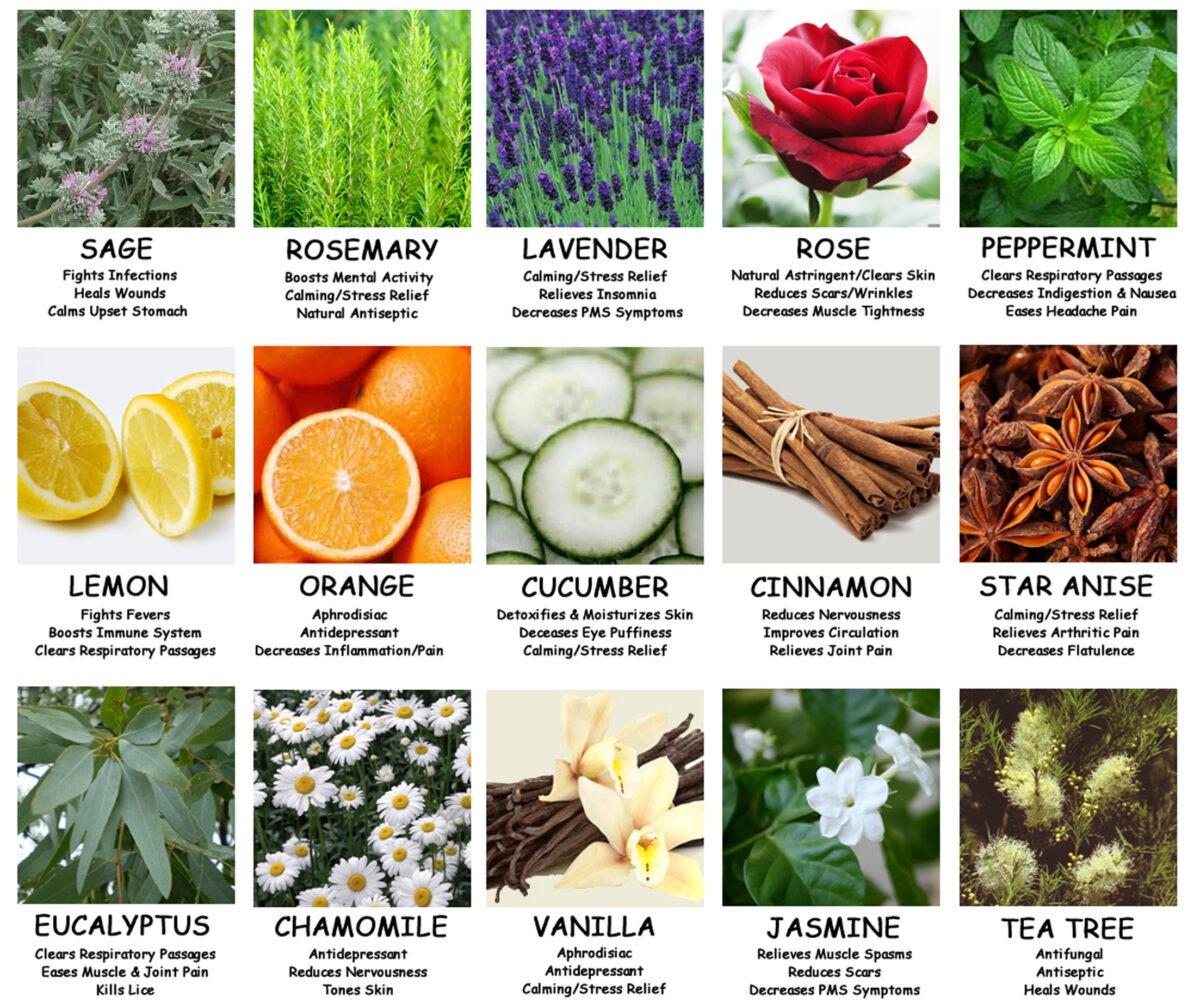Step into the realm of aromatherapy, where the essence of nature unfolds to soothe your mind, body, and soul. Discover the captivating world of aromatherapy oils, ancient remedies that have stood the test of time. Join us as we explore the diverse array of these fragrant treasures, their therapeutic properties, and the myriad ways they can enhance your well-being.
From calming lavender to invigorating peppermint, each oil holds a unique symphony of aromas and benefits. Whether inhaled, applied topically, or diffused into the air, aromatherapy oils offer a holistic approach to health and wellness.
Introduction to Aromatherapy Oils

Aromatherapy, the practice of using essential oils for therapeutic purposes, has a rich history dating back to ancient civilizations. Essential oils are concentrated plant extracts obtained through distillation, cold pressing, or other methods.
Some popular essential oils include:
- Lavender:Derived from lavender flowers, known for its calming and relaxing effects.
- Peppermint:Extracted from peppermint leaves, used for its invigorating and stimulating properties.
- Eucalyptus:Obtained from eucalyptus trees, known for its decongestant and respiratory benefits.
- Tea Tree:Derived from tea tree leaves, valued for its antibacterial and antifungal properties.
- Lemon:Extracted from lemon peels, known for its uplifting and energizing effects.
Methods of Using Aromatherapy Oils
Aromatherapy oils can be used in various ways:
- Inhalation:Diffusing oils into the air using an essential oil diffuser or adding a few drops to a hot bath.
- Topical Application:Diluting oils in a carrier oil (such as jojoba or coconut oil) and applying them to the skin for massage, compresses, or spot treatments.
- Ingestion:Some oils, such as lemon and peppermint, can be ingested in small amounts, but only under the guidance of a qualified healthcare professional.
Types of Aromatherapy Oils and Their Benefits

Aromatherapy oils are concentrated plant oils that are extracted through various methods such as distillation, cold pressing, or solvent extraction. These oils are highly fragrant and contain the therapeutic properties of the plants from which they are derived. Different types of aromatherapy oils offer a wide range of benefits, from relaxation and stress relief to pain relief and improved sleep.
Here is a table categorizing and listing different types of aromatherapy oils based on their plant source, aroma, and primary benefits:
| Oil Name | Plant Source | Aroma | Primary Benefits |
|---|---|---|---|
| Lavender Oil | Lavandula angustifolia | Floral, herbaceous | Relaxation, stress relief, sleep improvement |
| Peppermint Oil | Mentha piperita | Minty, refreshing | Energy boost, headache relief, nausea reduction |
| Eucalyptus Oil | Eucalyptus globulus | Camphoraceous, medicinal | Decongestant, respiratory support, pain relief |
| Tea Tree Oil | Melaleuca alternifolia | Woody, spicy | Antibacterial, antifungal, acne treatment |
| Lemon Oil | Citrus limon | Citrusy, uplifting | Mood boost, energy boost, air purification |
| Frankincense Oil | Boswellia carterii | Woody, earthy | Pain relief, inflammation reduction, wound healing |
| Ylang-Ylang Oil | Cananga odorata | Floral, sweet | Mood boost, stress relief, aphrodisiac |
| Bergamot Oil | Citrus bergamia | Citrusy, floral | Stress relief, mood boost, skin health |
3. Blending and Using Aromatherapy Oils

Harnessing the therapeutic benefits of aromatherapy oils involves the art of blending them to create custom combinations tailored to specific needs. Understanding the principles of blending is crucial to achieve effective and safe aromatherapy experiences.
Choosing Complementary Oils
- Consider the therapeutic properties of each oil and select those that complement each other’s effects.
- For example, lavender and chamomile promote relaxation, while peppermint and rosemary invigorate and uplift.
- Avoid blending oils with conflicting properties, such as stimulating oils (e.g., peppermint) with sedative oils (e.g., lavender).
Determining Safe Dilution Ratios
Diluting aromatherapy oils is essential to ensure their safe use on the skin or in diffusers. The concentration of oils varies depending on the intended application.
- For topical applications, a dilution of 2-3% is generally recommended (2-3 drops of essential oil per 10ml of carrier oil).
- For diffusers, a dilution of 1-2% is suitable (1-2 drops of essential oil per 100ml of water).
- Always refer to the specific instructions provided with your aromatherapy oils.
Using Aromatherapy Oils
Aromatherapy oils can be used in various ways to enjoy their therapeutic benefits.
Diffusers
- Add a few drops of essential oils to a diffuser filled with water and disperse them into the air.
- This method is ideal for creating a calming or uplifting atmosphere in a room.
Baths
- Mix a few drops of essential oils with a carrier oil (e.g., almond oil, jojoba oil) and add it to a warm bath.
- Soaking in an aromatherapy bath can promote relaxation, relieve stress, or improve sleep.
Massage
- Dilute essential oils in a carrier oil and use it as a massage oil.
- Aromatherapy massage combines the benefits of essential oils with the therapeutic touch of massage, promoting relaxation and reducing muscle tension.
4. Aromatherapy Oils for Specific Conditions
Aromatherapy oils possess therapeutic properties that can alleviate a wide range of health conditions. Scientific research and anecdotal evidence support the efficacy of specific oils for addressing common ailments such as stress, anxiety, sleep disorders, and pain management.
Stress and Anxiety
Certain aromatherapy oils have calming and sedative effects that can reduce stress and anxiety levels. These include:
- Lavender oil: Promotes relaxation, reduces cortisol levels, and improves sleep quality.
- Bergamot oil: Uplifts mood, alleviates stress, and reduces anxiety.
- Ylang-ylang oil: Relaxes the mind, promotes a sense of peace, and reduces tension.
Sleep Disorders
Aromatherapy oils can help improve sleep quality by inducing relaxation and reducing insomnia. Effective oils include:
- Chamomile oil: Promotes relaxation, reduces stress, and improves sleep.
- Lavender oil: Calms the mind, promotes relaxation, and improves sleep quality.
- Valerian root oil: Reduces anxiety, promotes relaxation, and improves sleep duration.
Pain Management
Some aromatherapy oils have analgesic and anti-inflammatory properties that can alleviate pain. These include:
- Eucalyptus oil: Reduces inflammation, relieves muscle pain, and improves circulation.
- Peppermint oil: Acts as a natural pain reliever, reduces muscle spasms, and improves circulation.
- Ginger oil: Reduces inflammation, relieves muscle pain, and improves digestion.
5. Safety Considerations and Contraindications
While aromatherapy oils offer numerous benefits, it’s crucial to be aware of potential risks and side effects associated with their use. Understanding contraindications is equally important, especially during pregnancy, breastfeeding, or for individuals with specific medical conditions.
It’s recommended to consult with a qualified healthcare professional or a certified aromatherapist before using aromatherapy oils, especially if you have any underlying health conditions. They can provide personalized guidance and ensure safe and effective use.
Potential Risks and Side Effects
- Skin irritation:Some oils, such as cinnamon, clove, and oregano, can cause skin irritation or allergic reactions in sensitive individuals.
- Respiratory issues:Inhaling certain oils, such as eucalyptus or peppermint, in high concentrations can irritate the respiratory tract, leading to coughing, wheezing, or shortness of breath.
- Toxicity:Ingesting even small amounts of some oils, such as tea tree oil or wintergreen oil, can be toxic and cause serious health problems.
- Drug interactions:Some oils, such as grapefruit oil, can interact with certain medications, altering their effectiveness or side effects.
Contraindications
- Pregnancy:Certain oils, such as clary sage, rosemary, and juniper berry, should be avoided during pregnancy as they may stimulate uterine contractions or cause other complications.
- Breastfeeding:Some oils, such as peppermint and spearmint, can pass through breast milk and affect the baby.
- Epilepsy:Oils that are known to be stimulating, such as rosemary and basil, should be avoided by individuals with epilepsy as they may trigger seizures.
- Medical conditions:Individuals with certain medical conditions, such as asthma, heart problems, or liver disease, may need to avoid certain oils or use them with caution.
Safety Guidelines
To ensure safe use of aromatherapy oils, follow these guidelines:
- Always dilute essential oils with a carrier oil, such as jojoba or almond oil, before applying them to the skin.
- Do not ingest essential oils unless under the guidance of a qualified healthcare professional.
- Avoid using essential oils near open flames or heat sources.
- Store essential oils in a cool, dark place away from children and pets.
- Dispose of essential oils properly by following local regulations.
Ending Remarks
As we conclude our journey into the world of aromatherapy oils, remember that these fragrant elixirs are more than just scents; they are gateways to unlocking a deeper sense of balance and vitality. Embrace their power, experiment with different blends, and discover the transformative effects they can have on your life.
Let the aromatic wonders of nature guide you towards a path of well-being and serenity.